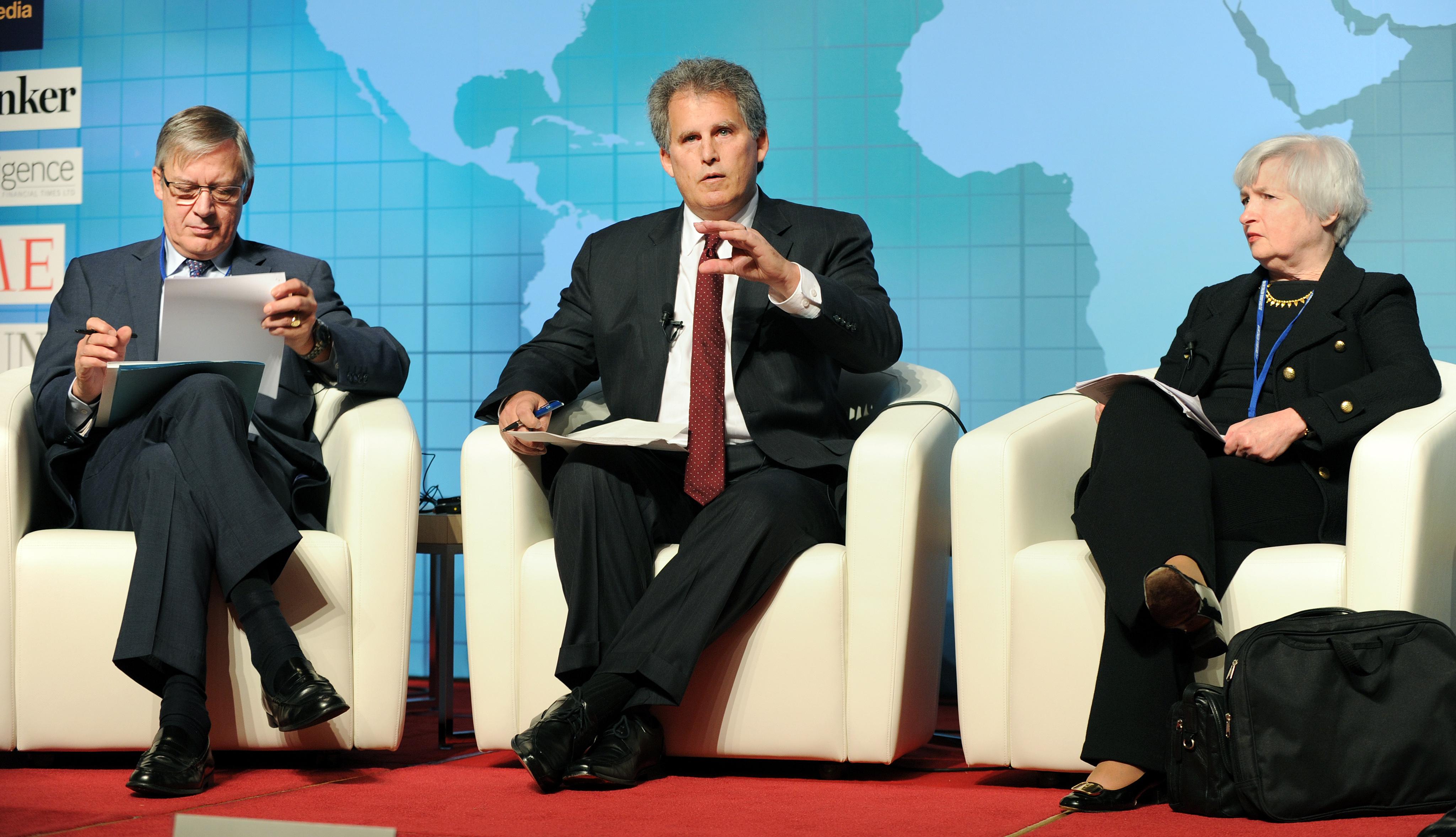The financial markets are delighted that Larry Summers has withdrawn from consideration as chair of the Federal Reserve. “Call it the Yellen rally,” Neil Irwin writes in Wonkblog, referring of course to Janet Yellen, the current vice chair of the Fed, whom President Obama “awkwardly” will probably choose, now that Summers has pulled out. Maybe the traders and their clients are pleased because there’s a real difference in monetary policy between Yellen and Summers, and she would keep interest rates lower for longer. Or maybe there’s not much disagreement between them, as Matt Yglesias argues, and the markets are up because Yellen will have a smoother ride to confirmation than Summers would have, avoiding a bout of uncertainty.
I haven’t been rallying for Yellen, but I’m glad Summers is out because I don’t see why closeness to Obama should determine who gets to be Fed chair. The most important reason Summers was the front-runner seems to have been his longtime working relationship with the president. But chair of the Fed is a lasting position in an institution outside the White House. Being Fed chair is more like being Supreme Court justice than being a White House adviser: You’re supposed to be independent. President Obama didn’t choose Sonia Sotomayor because they were pals, and he shouldn’t insist on personal affinity in making this choice either.
When the White House was pushing for Summers, they framed the president’s preference in terms of trust. Their “bond” was “forged in the crucible of the financial crisis,” Obama strategist David Axelrod said. An anonymous White House official told the New York Times, “It’s like the attachment you feel for your heart surgeon after he performs a quadruple bypass.” Another one turned to a mixed military metaphor. “We were sort of in a foxhole together, and he was a stand-up dude” (very dangerous in a foxhole!).
The “dude” word choice was unfortunate given the retro claims from the right that Yellen’s ascension threatened to impose an era of “The Female Dollar,” whatever that means. The objection from the New York Sun, bearer of that headline, and the Wall Street Journal editorial page was that Yellen was about to get the nod because she’s a woman, a triumph for the gender police. Gender didn’t come up when the names of any male candidates were floated, as Ezra Klein pointed out. It’s only accused of driving a president’s choice when he goes in the female direction.
More interesting than the knee-jerk sexism is the question whether it’s still easier to be the dude in the Obama foxhole if you’re actually a dude. There’s a list of administration names that serve as retorts: Valerie Jarrett, Susan Rice, Samantha Power, to pick three. But on the apparent short list for the Fed, along with Summers and Yellen, was former Treasury Secretary Timothy Geithner, who was told the job was his if he wanted it. (He doesn’t.) Geithner, of course, is another trusted insider, and of course another guy.
My point isn’t that Obama should pick Yellen because he owes it to women. But I do think that for plenty of other male leaders, putting a high premium on personal comfort level and bonding tends to favor the male candidate over the equally qualified woman. If you think gender is irrelevant to the question of who would be the best next Fed chair, then Obama should look beyond his inner circle.
And he should do that anyway. The next Fed chair will outlast the president in office. Their working relationship isn’t what matters most. And he or she shouldn’t decide when to raise the interest rate out of loyalty to the White House.
The long-term nature of the Fed job, and critical distance from the president, are features of serving on the Supreme Court, too. It’s true that presidents have at times factored in personal ties. Obama had known Elena Kagan since the early 1990s when he picked her to be a justice in 2010, and she’d served as his solicitor general. But before Kagan, you have to go back to Lyndon Johnson’s (ill-fated) choice of Abe Fortas for another court pick rooted in friendship. (I’m not counting George W. Bush’s bumbling effort to nominate his White House counsel, Harriet Miers.) Presidents generally know to look past their noses for Supreme Court nominees. I’m sure this administration, after five grueling years, is reluctant to trust anyone who hasn’t been in its trenches with the keys to the Fed. But Obama should.
